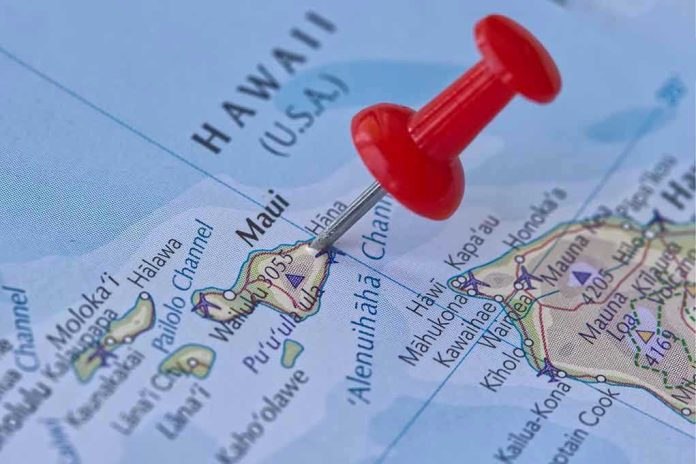
Honolulu taxpayers just got slapped with a $308,000 bill to reimburse legal fees for city officials entangled in Hawaii’s biggest police corruption scandal—reminding everyone, yet again, who really pays for the crimes of the powerful.
At a Glance
- Taxpayers must reimburse $308,000 in legal fees for city officials implicated in the Honolulu police corruption scandal.
- Former Police Chief Louis Kealoha and his wife, ex-prosecutor Katherine Kealoha, were convicted in 2020, but the financial fallout drags on.
- The Honolulu City Council signed off on legal settlements, leaving the public to cover costs for convicted or implicated officials.
- Public outrage grows as the city’s budget bleeds, while trust in local government is at an all-time low.
Hawaii’s Corruption Scandal: Taxpayers Left Holding the Bag
Once again, law-abiding citizens foot the bill for the disastrous decisions of public officials who thought the rules didn’t apply to them. The city council’s latest move forces Honolulu taxpayers to cough up $308,000 in legal fees for three officials—Leong, Sword, and Amemiya—who were embroiled in the same corruption scandal that sent former police chief Louis Kealoha and former prosecutor Katherine Kealoha to prison back in 2020. The Department of Justice didn’t mince words, calling the original scheme “staggering in its breadth, its scope, and its audacity.” But when the dust settled, it wasn’t the crooks picking up the tab, it was the everyday citizens, whose hard-earned money is now paying for legal defense bills run up by the very people meant to serve them.
The city’s payout is the result of legal settlements and council decisions dating back to 2017, when Kealoha was given a hefty check on the understanding he’d pay it back if convicted. Justice finally caught up with the Kealohas, but guess what? The city’s lawyers and council members have managed to turn this into a taxpayer fiasco, with reimbursements for other officials still pouring out even as the original criminals sit behind bars. These aren’t isolated incidents—they’re part of a sickening pattern of government indemnification, where “accountability” means a slap on the wrist for the insiders while the public pays the price.
Broken Trust and Ballooning Costs: The Real Price of Corruption
What does $308,000 mean for a city already wrestling with budget shortfalls, inflated spending, and crumbling infrastructure? It means fewer resources for basic services, a deeper hole for the next administration to dig out of, and yet another reason for citizens to distrust their supposedly “ethical” leaders. The scandal has already consumed years of court time, media coverage, and city council wrangling, racking up untold administrative costs on top of the legal fees themselves. Watchdogs and outraged taxpayers alike are left wondering: where’s the line? At what point does public outrage translate into real reform, instead of these endless cycles of waste and betrayal?
The city council hasn’t bothered to publicly justify these reimbursements in detail—maybe because they can’t. Instead, they quietly approved the payments, hoping the story would fade away. But the facts are clear: convicted or implicated officials are getting their legal bills paid, while the people who suffer are the ones who had zero say in the decisions that led to this debacle. The Kealohas’ downfall wasn’t just a personal failure, it was a systemic collapse of accountability, and Honolulu’s taxpayers are now the ones holding the bill.
Why This Matters: Setting the Worst Kind of Precedent
The consequences of this scandal aren’t limited to Hawaii. Across the country, similar cases have seen public officials walk away from criminal convictions with their legal costs covered by the very people they betrayed. Legal scholars and ethics experts are sounding alarms: when cities indemnify the worst behavior of their own, they erode public trust, encourage bad actors, and undermine the very idea of accountability. The promise of public service is supposed to be about protecting the people—not protecting insiders from the consequences of their own corruption.
Honolulu’s experience should be a wake-up call. If taxpayers don’t demand change—if city councils keep writing checks instead of writing new rules—then nothing will stop the next round of self-dealing from costing even more. The message to every law-abiding, taxpaying citizen couldn’t be clearer: in the upside-down world of government “accountability,” the consequences never seem to land on the ones who deserve them most. Instead, they land right where they always do—on you, the taxpayer.
Sources:
WND, July 13, 2025: “Concealed: Hawaii’s police corruption scandal continues”




